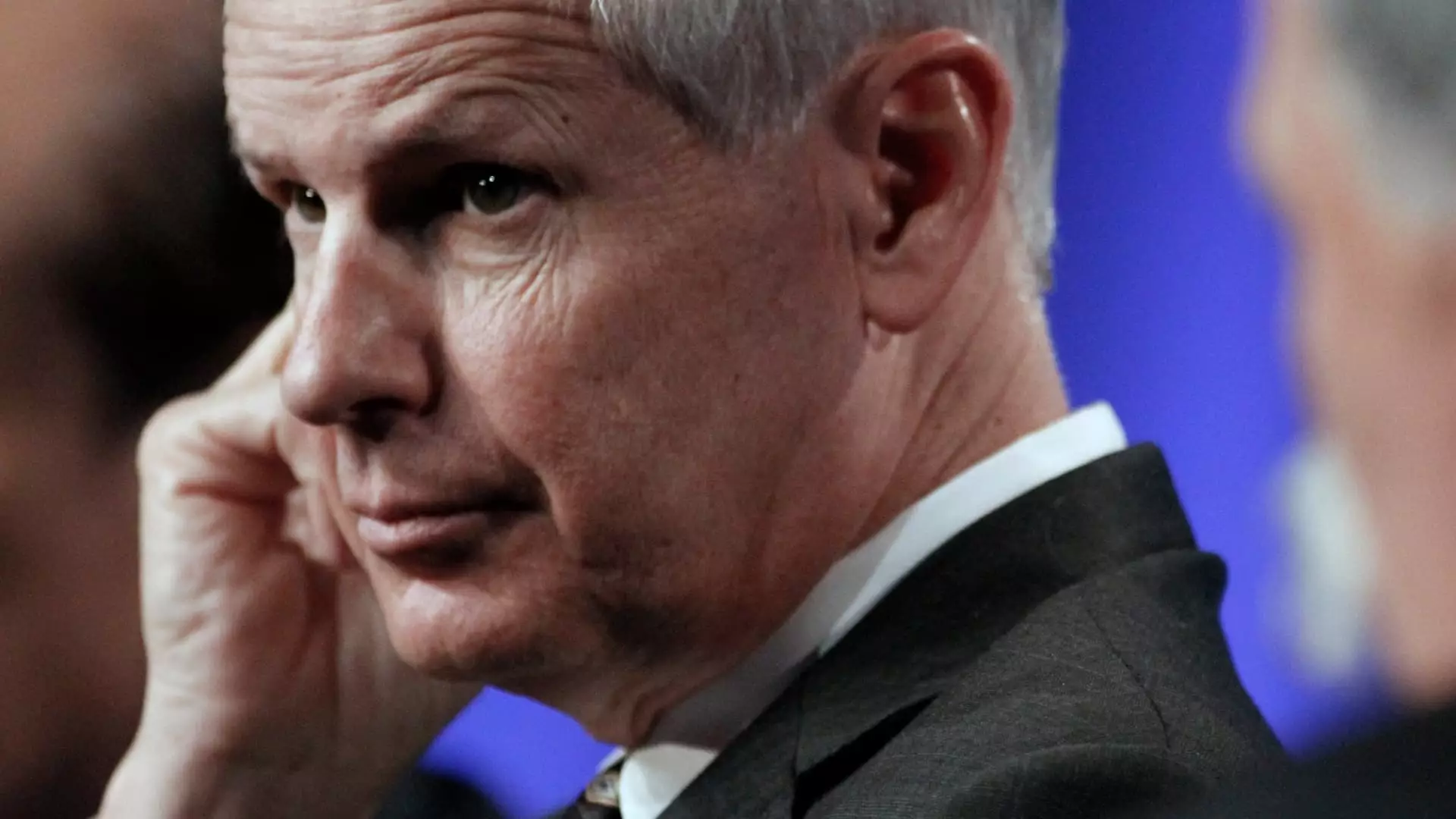In an era characterized by rapid technological advancement and evolving consumer preferences, the traditional pay-TV industry finds itself at a crossroads. Once hailed as the pinnacle of home entertainment, satellite television, led by pioneers like Charlie Ergen with his Dish Network, is facing mounting pressure from innovative streaming services. As speculation swirls around EchoStar’s potential sale of Dish Network to DirecTV, owned by private-equity firm TPG and AT&T, critical questions arise about the future of such legacy services and the implications for millions of customers.
Recent developments indicate that EchoStar is in advanced negotiations to divest itself of Dish Network. The urgency of these talks can largely be attributed to EchoStar’s looming financial obligations, particularly a hefty $1.98 billion debt that is due in just a few months. With only $521 million in cash and marketable securities at its disposal as of mid-2023, the company clearly faces a financial precipice. This level of liquidity, juxtaposed with predictions of negative cash flow through 2024, paints a dire picture for the company’s sustainability and raises concerns among stakeholders.
The impending deadline for debt repayment is forcing EchoStar’s hand. Industry analysts, such as Craig Moffett from MoffettNathanson, speculate that bankruptcy looms as a plausible outcome if the situation does not improve. Hence, the proposed sale to DirecTV, which could be valued at over $9 billion, emerges not merely as a strategic option, but as a potentially necessary step for survival.
EchoStar and DirecTV have flirted with the idea of a merger for over two decades. A notable attempt occurred in 2002 but was ultimately thwarted by regulatory scrutiny. The current negotiations appear to sidestep similar hurdles, at least for now, although the complexities surrounding EchoStar’s financial health could introduce complications once again. The absence of wireless spectrum assets—once a major focus for Dish Network—means that this deal could pivot the company’s future trajectory away from wireless and reinforce its image as a traditional satellite provider, further entrenched in a declining market.
For EchoStar, this merger represents more than just financial relief; it could also mean relinquishing prestige and legacy. Many industry players view such consolidations as a capitulation to the inevitable decline of traditional television in the face of the streaming revolution.
The viability of satellite television has eroded significantly as consumer preferences shift towards on-demand streaming platforms such as Netflix, Disney+, and Amazon Prime. With Dish Network currently reporting 6.1 million traditional satellite subscribers and 2 million Sling TV users, it is evident that the battle for customer attention has become increasingly challenging. DirecTV shares a similar fate, having witnessed a steep decline from 15.4 million subscribers in 2015 to approximately 11 million today.
This backdrop of subscriber attrition provides the context for DirecTV and Dish’s ongoing efforts to pivot toward streaming solutions. With DirecTV recently focusing on promoting its streaming capabilities, the timing of a potential merger could offer a bolstered subscriber base that may help to weather the storm of declining traditional viewership.
Despite the apparent urgency for EchoStar to offload its pay-TV operations, challenges remain. The complexities surrounding potential bankruptcy and debt negotiations could hinder the approval of any merger. Given the significant regulatory scrutiny in previous attempts to consolidate satellite service providers, industry experts argue that any merger would be subject to fierce examination by governmental agencies, particularly given the current consumer sentiment towards monopolistic practices in the telecommunications sector.
An all-cash transaction between DirecTV and EchoStar could theoretically catalyze a transformation within the pay-TV space, but it does come with strings attached. Critics will likely focus on the implications of such a merger for competition in the market, as leaning further into a dual-satellite paradigm may stifle innovation and choice, especially for consumers increasingly gravitating towards a la carte options and subscription bundles.
As negotiations inch closer to a potential deal, the fate of Dish Network remains uncertain amid upheaval and transformation in the media landscape. Should EchoStar successfully navigate its financial entanglements and forge an alliance with DirecTV, the merger could prove to be a pivotal moment in the ongoing struggle for survival among traditional pay-TV providers. However, it underscores a broader narrative: the pay-TV sector must evolve or face extinction. As consumer habits continue to shift, companies unwilling or unable to adapt may find themselves history’s footnote in a world increasingly dominated by digital content delivery and personalized viewing experiences.

